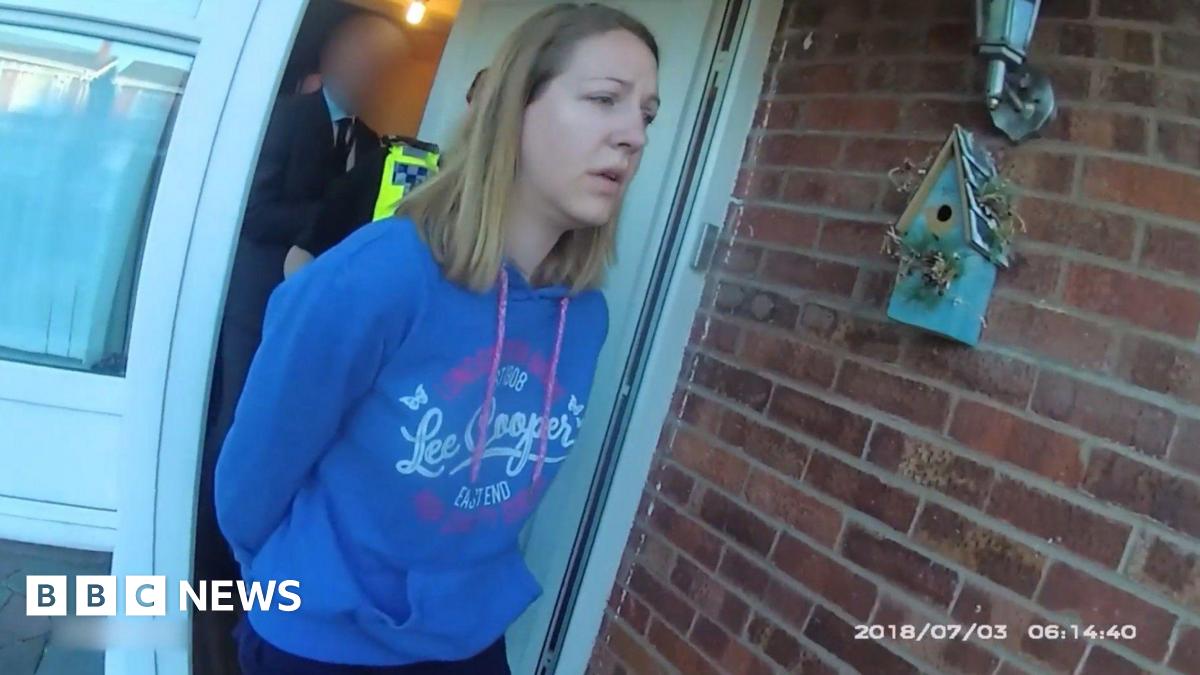Amity Island
Well-Known Member
- Relationship to Diabetes
- Type 1
Last edited:

I find all this trial (any trial) stuff really interesting. It's really brought into the public eye how trials, evidence and how a version of events is presented. When in reality all there really is is the truth. The truth should be the only aim of all parties.I’m afraid I don’t look to David Davis for facts nor do I trust his opinion:

Former Brexit secretary ridiculed for remarks that suggest he does not understand Brexit negotiations
Former Brexit secretary wrongly states UK could enter transition period without reaching deal, in comments described as 'unbelievable'www.independent.co.uk
Perhaps the reason the Defence said very little about the notes is the same reason the only expert witness they called was a plumber? Namely, they knew that the Prosecution would cross-examine them and Letby and predicted that that wouldn’t go well…
Sadly that's not how our justice system is structured. (Probably "sadly", anyway. I'd like to imagine a justice system structured to try to establish the truth would be a better one than our adversarial one, but I'm not that sure it would be. I'm sure it wouldn't necessarily be better.)The truth should be the only aim of all parties.
I find all this trial (any trial) stuff really interesting. It's really brought into the public eye how trials, evidence and how a version of events is presented. When in reality all there really is is the truth. The truth should be the only aim of all parties.
I just saw a short article this morning about lay people juries. The are saying that lay people are unlikely to be knowledgeable enough to be able to interpret or challenge expert witnesses. They may propose a different format for complicated cases.Well, it should be, but the Defence have to defend - and yet they didn’t have a single medical expert stand up and give evidence for Letby. The Prosecution had a number of experts. I presume the Defence didn’t call any because it was likely they wouldn’t have helped Letby’s case.
As for what Davis says about the statistics chart - that’s simply not true. The police anonymised the babies that had died, then Dewi Evans looked through the anonymised deaths and made a list of suspicious ones. Each of these alleged suspicious deaths was investigated separately by one or more detectives for each death - all separate teams. Then they came together to discuss their findings, baby by baby, and - shockingly - one person appeared connected to each of those suspicious deaths: Letby.
I just saw a short article this morning about lay people juries. The are saying that lay people are unlikely to be knowledgeable enough to be able to interpret or challenge expert witnesses. They may propose a different format for complicated cases.

This is an interesting topic. As far as I'm concerned LL was found guilty, "banged up" & held accountable. Logic dictates if you done nuffin wrong, the accusation against will trip up on the account & fail.


Thanks. btw the file on 4 report is here if you'd like to read.That’s been explained previously @Amity Island Moreover, she was present when the baby died, and has admitted accessing the ward when not on duty.

There are also many complex issues surrounding whether or not people tell 'the truth', including: 1) People may have differing views of what 'the truth' is; 2) People may tell lies even if they're not guilty of the crime(s) of which they're being accused; 3) People (such as Stefan Kiszko) may confess to crimes of which they're not guilty; 4) Witnesses (including police officers) similarly may not always tell the objective truth.It’s my understanding at the time, concerns were raised about the nurse higher in the chain of command regarding possible alleged wrongdoing. But nothing was followed up? So I’m assuming a live streamed account in this enquiry would dispel these elements.
From memory they are something like 50/60% reliable? Jeremy Kyle show claimed 90% accuracy. & it’s well documented debacle regarding the sorry tragic results of “guests” submitting to “that.”
The French system aims to be inquisitorial rather than adversarial: who knows which is better?Sadly that's not how our justice system is structured. (Probably "sadly", anyway. I'd like to imagine a justice system structured to try to establish the truth would be a better one than our adversarial one, but I'm not that sure it would be. I'm sure it wouldn't necessarily be better.)
It does seem that statistical and scientific evidence isn't handled all that well in courts. Hence the 2011 consultation https://lawcom.gov.uk/project/expert-evidence-in-criminal-proceedings/ (most of which wasn't implemented).
So while I think David Davis is generally a bit of a twit, I think it's conceivable that he might be right to be concerned in this particular case.
Unfortunately miscarriages of justice do happen - although I have no idea whether or not that's the case with Lucy Letby. There's also the issue that someone may indeed have done something "wrong" but not be guilty of the specific crime(s) of which they're convicted. Presumably the more serious the (alleged) crime, the more scrutiny we need to give to the legal processes surrounding that alleged crime? Letby's alleged crimes (and punishment) are right at the top end of seriousness and so it seems appropriate that the relevant legal processes are examined in great detail.This is an interesting topic. As far as I'm concerned LL was found guilty, "banged up" & held accountable. Logic dictates if you done nuffin wrong, the accusation against will trip up on the account & fail.
Whatever the deal is? Lets be thankful there isn’t capital punishment any more.Unfortunately miscarriages of justice do happen - although I have no idea whether or not that's the case with Lucy Letby. There's also the issue that someone may indeed have done something "wrong" but not be guilty of the specific crime(s) of which they're convicted. Presumably the more serious the (alleged) crime, the more scrutiny we need to give to the legal processes surrounding that alleged crime? Letby's alleged crimes (and punishment) are right at the top end of seriousness and so it seems appropriate that the relevant legal processes are examined in great detail.
